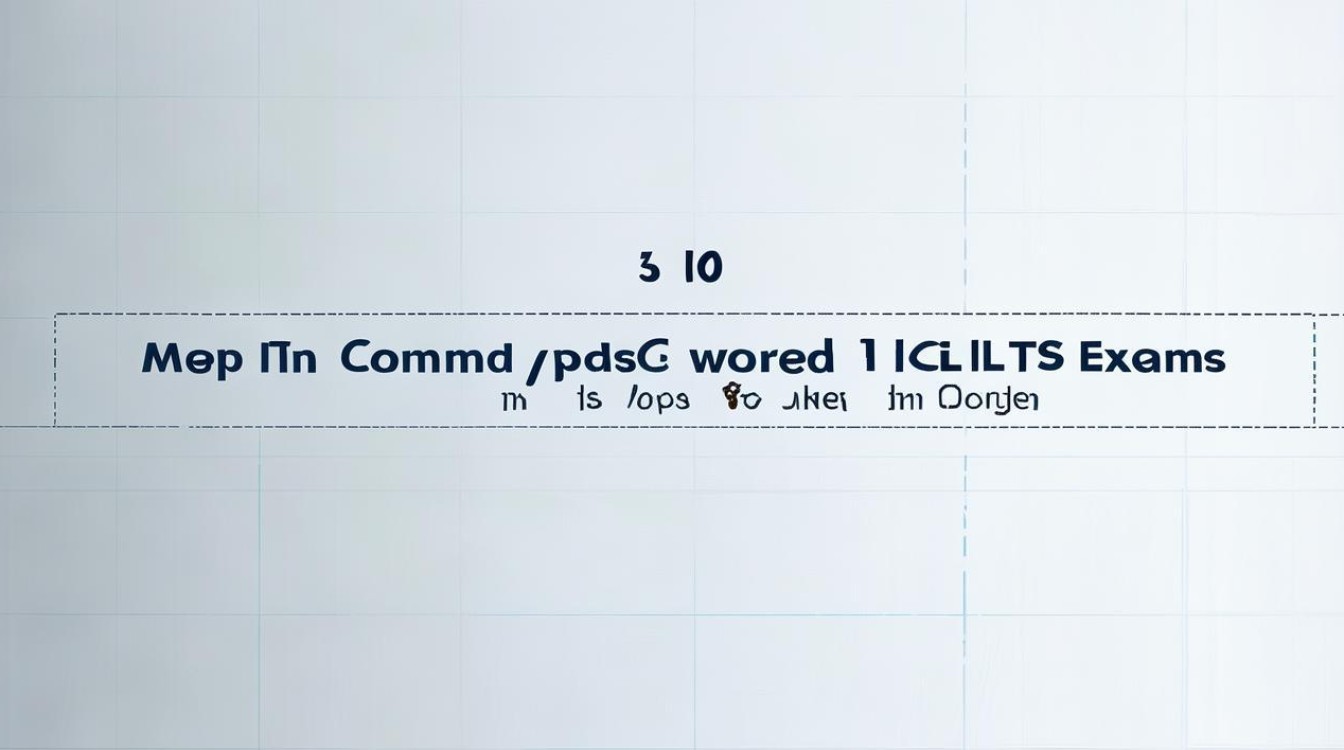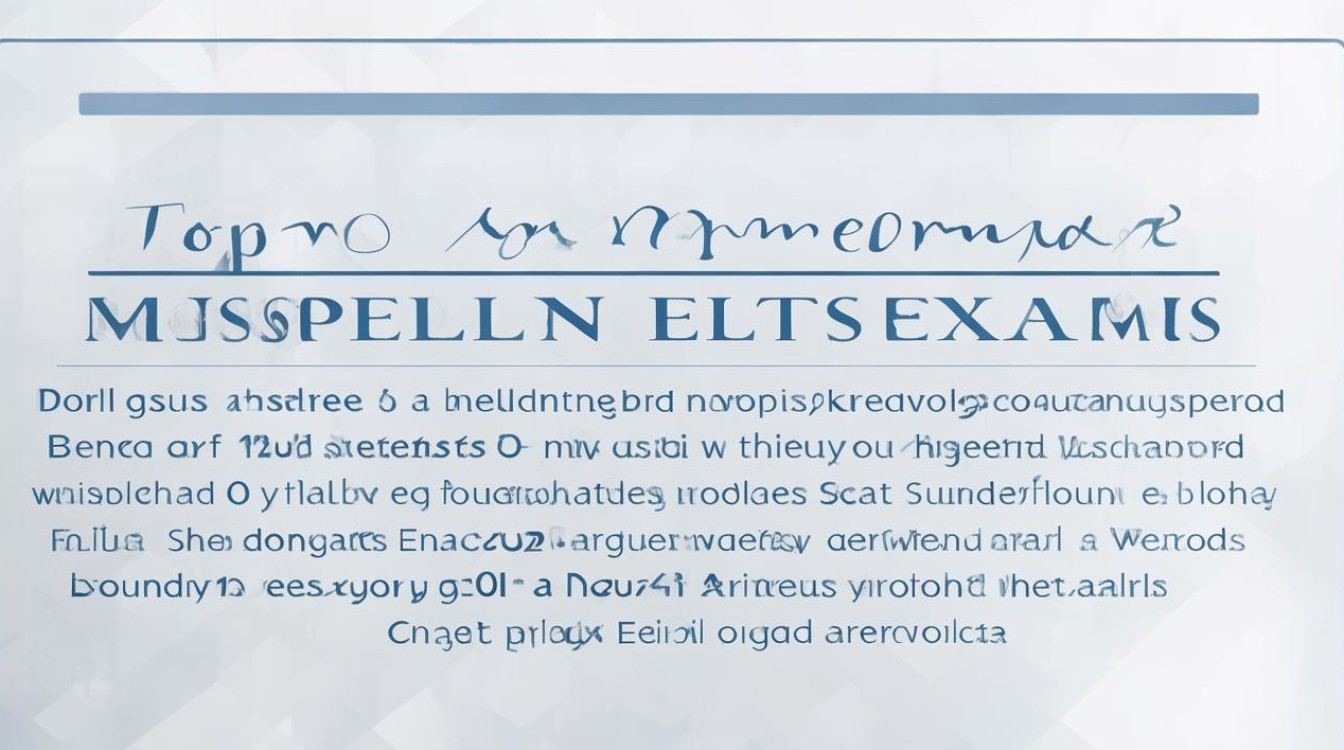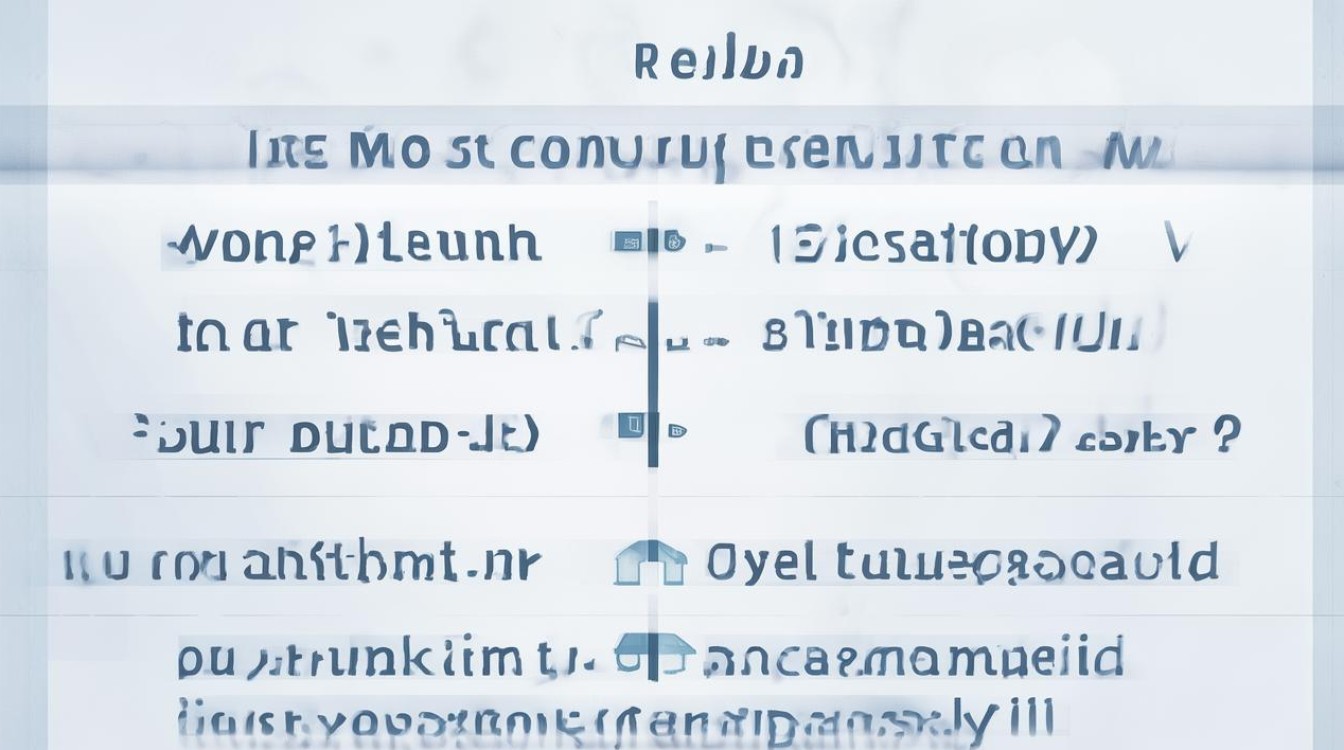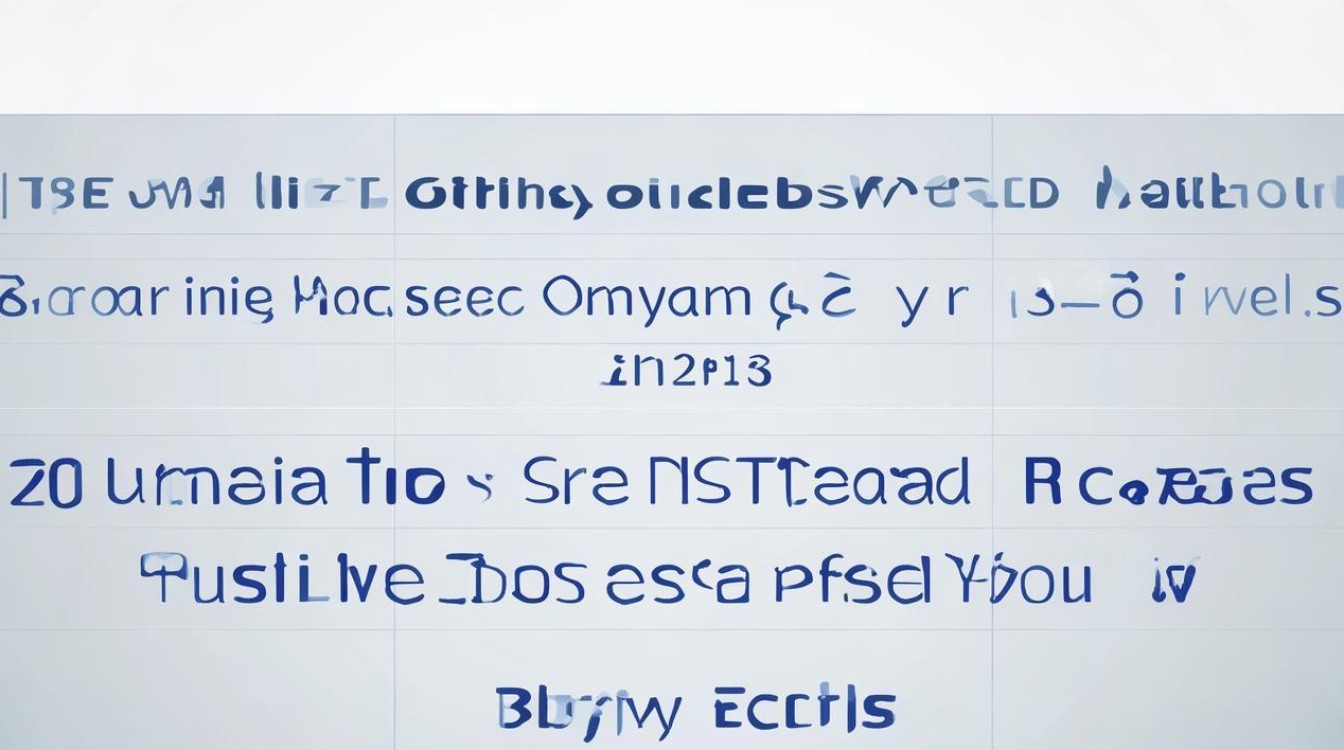雅思考试中,词汇量是决定分数高低的关键因素之一,许多考生在备考时花费大量时间背诵单词,却依然在考试中犯下低级错误,这些错误往往集中在拼写、词义混淆或用法不当上,本文将列举雅思考试中最容易出错的单词,帮助考生避开陷阱,提升成绩。

拼写易混淆的单词
英语中存在大量拼写相近但含义完全不同的单词,考生稍不注意就会用错,以下是高频易错拼写词:
-
Affect / Effect
- Affect(动词):影响
The weather can affect your mood. - Effect(名词):效果
The new policy had a positive effect on the economy.
- Affect(动词):影响
-
Principal / Principle
- Principal(名词):校长;(形容词)主要的
The principal reason for his success is hard work. - Principle(名词):原则
She refused to compromise her principles.
- Principal(名词):校长;(形容词)主要的
-
Stationary / Stationery
- Stationary(形容词):静止的
The car remained stationary at the traffic light. - Stationery(名词):文具
She bought new stationery for the school year.
- Stationary(形容词):静止的
词义易混淆的单词
有些单词看起来相似,但含义截然不同,考生在写作或口语中容易误用。
-
Economic / Economical

- Economic(形容词):经济的(与国家或商业经济相关)
The government introduced new economic policies. - Economical(形容词):节约的
This car is more economical than the previous model.
- Economic(形容词):经济的(与国家或商业经济相关)
-
Historic / Historical
- Historic(形容词):具有历史意义的
The signing of the treaty was a historic moment. - Historical(形容词):与历史相关的
This book provides a historical analysis of the war.
- Historic(形容词):具有历史意义的
-
Lose / Loose
- Lose(动词):丢失
Don’t lose your passport while traveling. - Loose(形容词):松的
The screw is loose and needs tightening.
- Lose(动词):丢失
发音相似但含义不同的单词
英语中有许多单词发音相近,但意思完全不同,考生在听力或口语中容易混淆。
-
Accept / Except
- Accept(动词):接受
She decided to accept the job offer. - Except(介词):除了
Everyone attended the meeting except John.
- Accept(动词):接受
-
Compliment / Complement
- Compliment(名词/动词):赞美
She received a compliment on her dress. - Complement(名词/动词):补充
The wine complements the flavor of the dish.
- Compliment(名词/动词):赞美
-
Desert / Dessert

- Desert(名词):沙漠;(动词)抛弃
The Sahara is the largest hot desert in the world. - Dessert(名词):甜点
We had chocolate cake for dessert.
- Desert(名词):沙漠;(动词)抛弃
用法易错的单词
有些单词在特定语境下容易用错,考生需特别注意。
-
Advice / Advise
- Advice(名词):建议(不可数)
She gave me some useful advice. - Advise(动词):建议
The doctor advised him to rest.
- Advice(名词):建议(不可数)
-
Practice / Practise
- Practice(名词):练习(美式英语中动词也用practice)
Regular practice improves your skills. - Practise(动词):练习(英式英语)
You should practise speaking English daily.
- Practice(名词):练习(美式英语中动词也用practice)
-
Rise / Raise
- Rise(不及物动词):上升
The sun rises in the east. - Raise(及物动词):举起;提高
He raised his hand to ask a question.
- Rise(不及物动词):上升
常见学术词汇易错点
雅思学术类考试中,某些学术词汇容易被误用,影响写作和阅读得分。
-
Data / Datum

- Data(复数):数据(现代英语中常作单数使用)
The data shows a clear trend. - Datum(单数):单个数据点(较少使用)
- Data(复数):数据(现代英语中常作单数使用)
-
Criteria / Criterion
- Criteria(复数):标准
The selection criteria are strict. - Criterion(单数):单个标准
Price is an important criterion.
- Criteria(复数):标准
-
Phenomena / Phenomenon
- Phenomena(复数):现象
These natural phenomena are fascinating. - Phenomenon(单数):单个现象
Aurora borealis is a rare phenomenon.
- Phenomena(复数):现象
容易拼错的单词
即使简单单词,考生也可能因疏忽而拼错,影响写作分数。
- Definitely(常被误拼为 definately)
- Separate(常被误拼为 seperate)
- Occurrence(常被误拼为 occurence)
- Embarrass(常被误拼为 embarass)
- Maintenance(常被误拼为 maintainance)
如何避免单词错误?
- 建立错词本:记录自己常错的单词,定期复习。
- 结合语境记忆:通过例句理解单词用法,而非死记硬背。
- 多练习拼写:尤其注意发音不规则的单词。
- 模拟考试环境:在限时写作中检查拼写和用词准确性。
- 使用权威词典:如牛津、剑桥词典,避免网络错误信息。
雅思考试对词汇的精准度要求极高,拼写或用词错误可能导致失分,通过系统整理易错词,考生能有效减少失误,提升整体表现。

